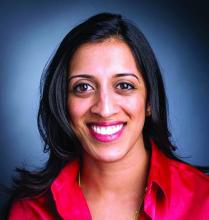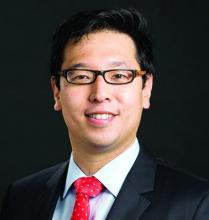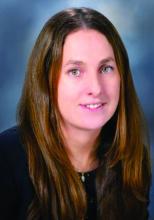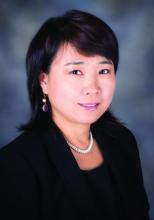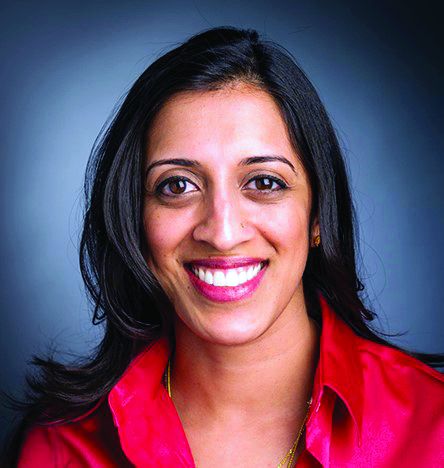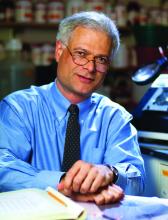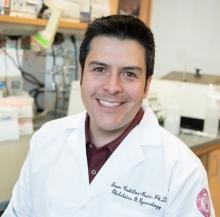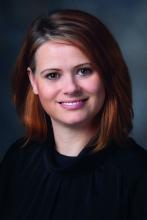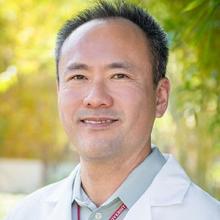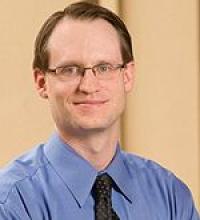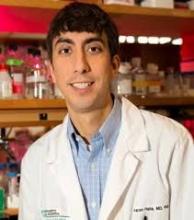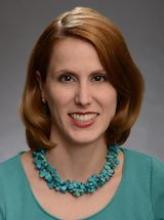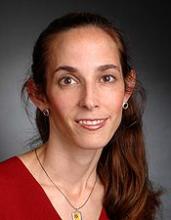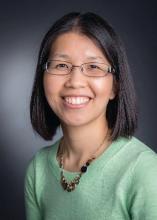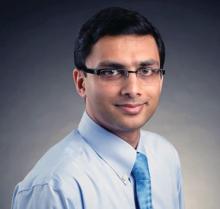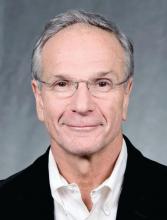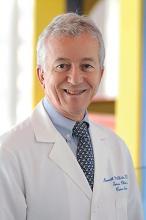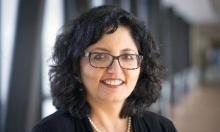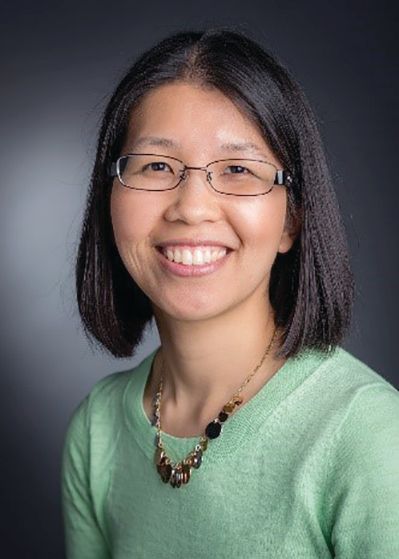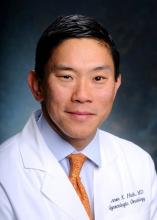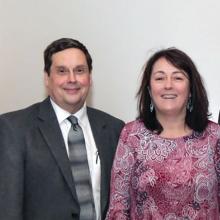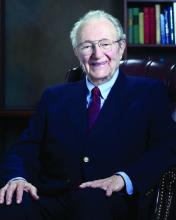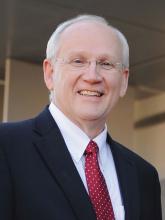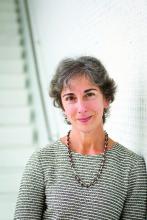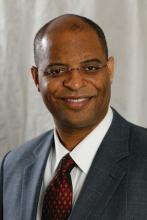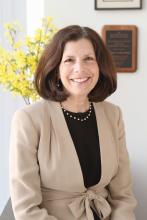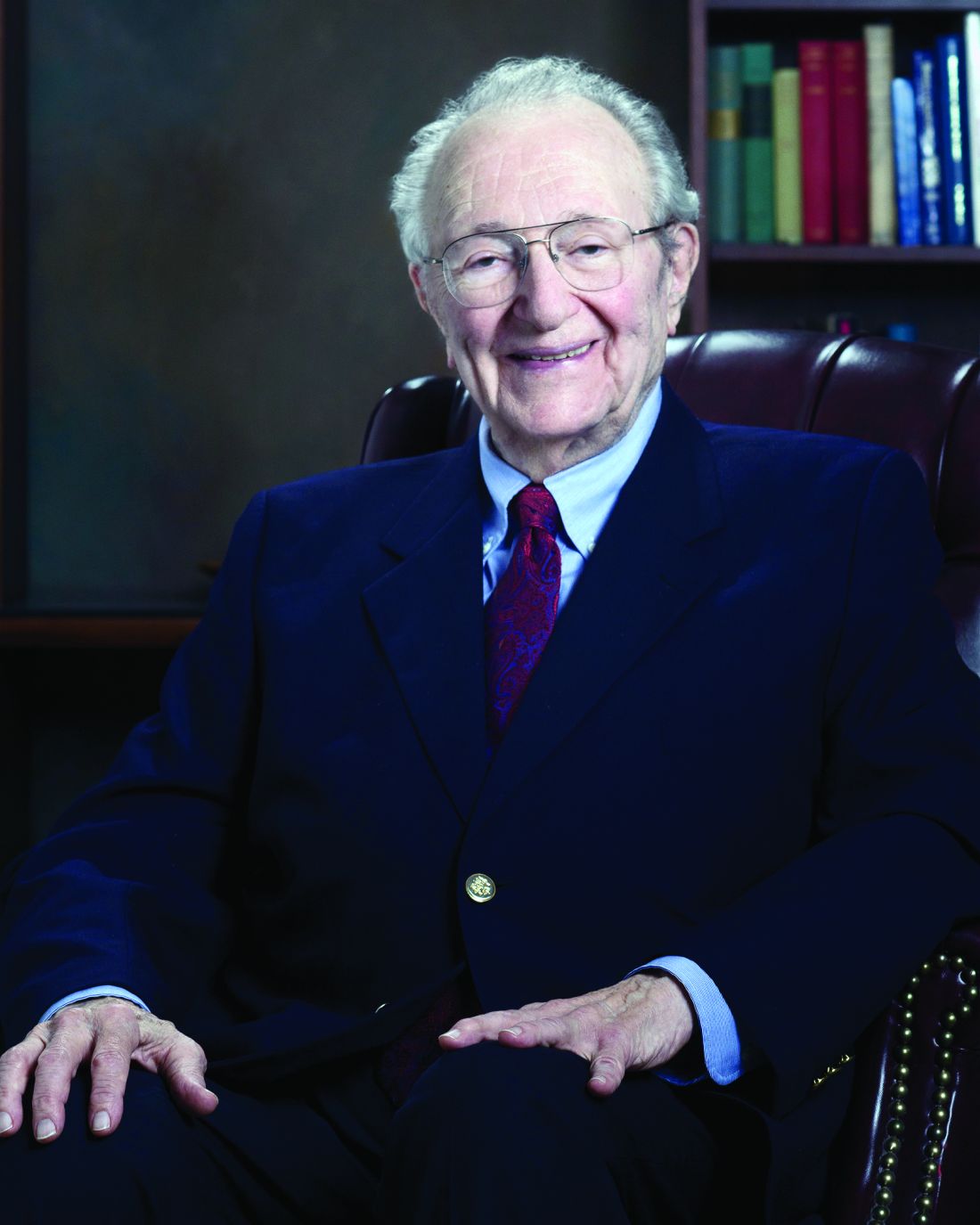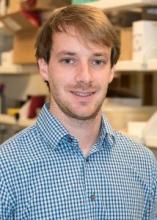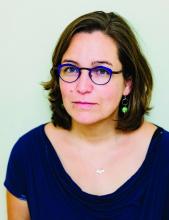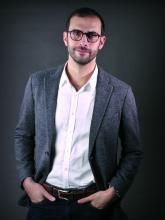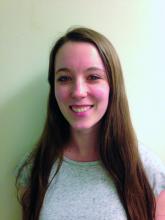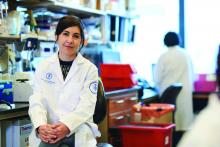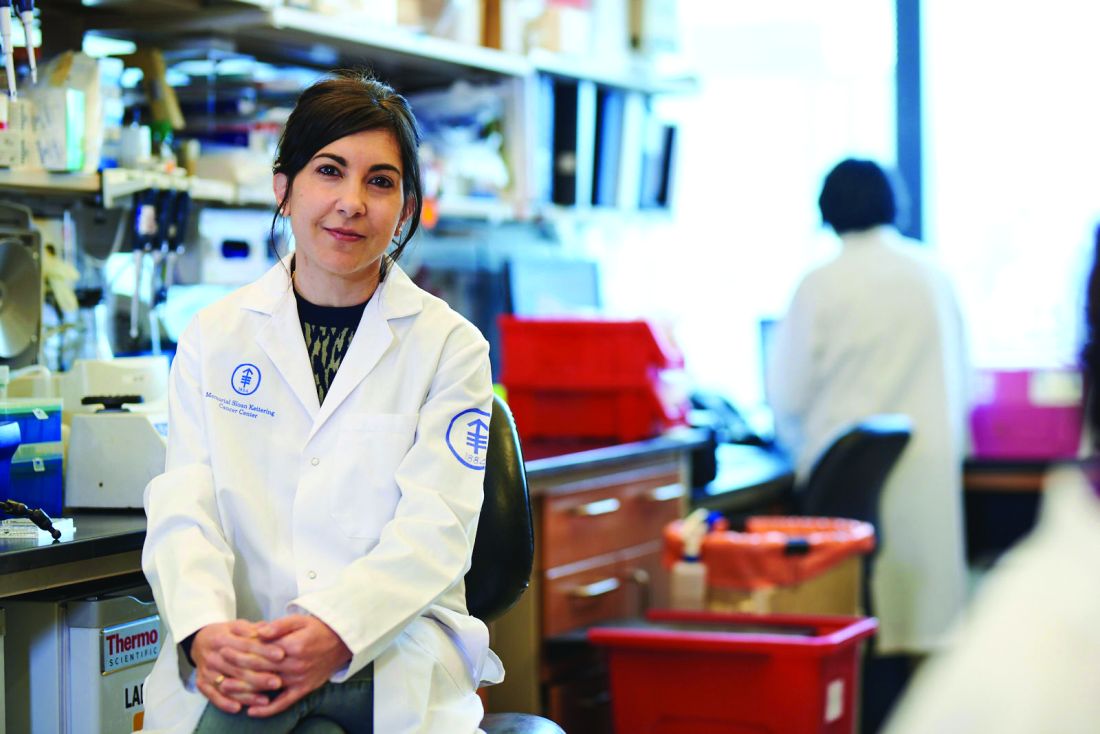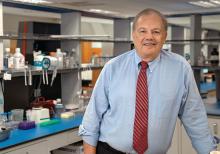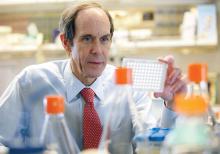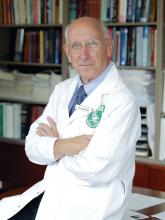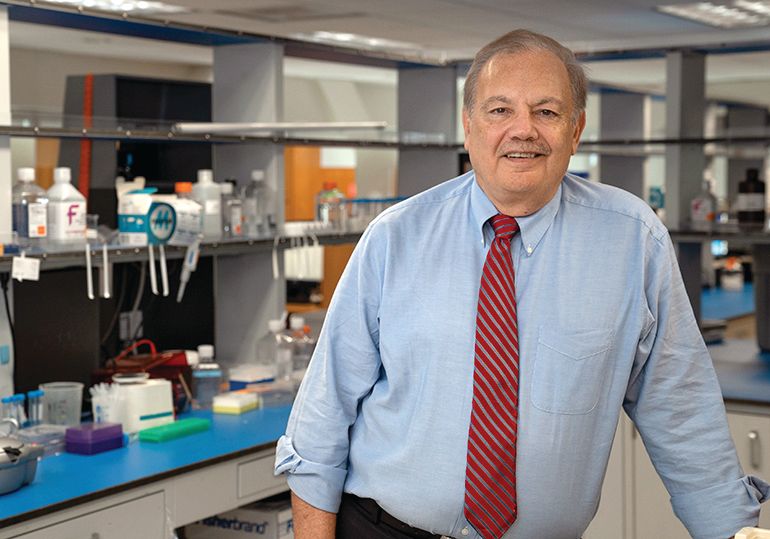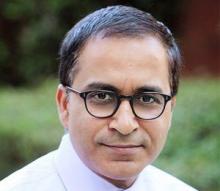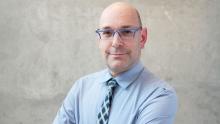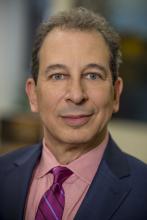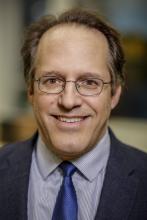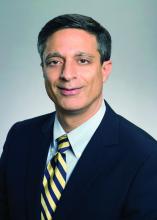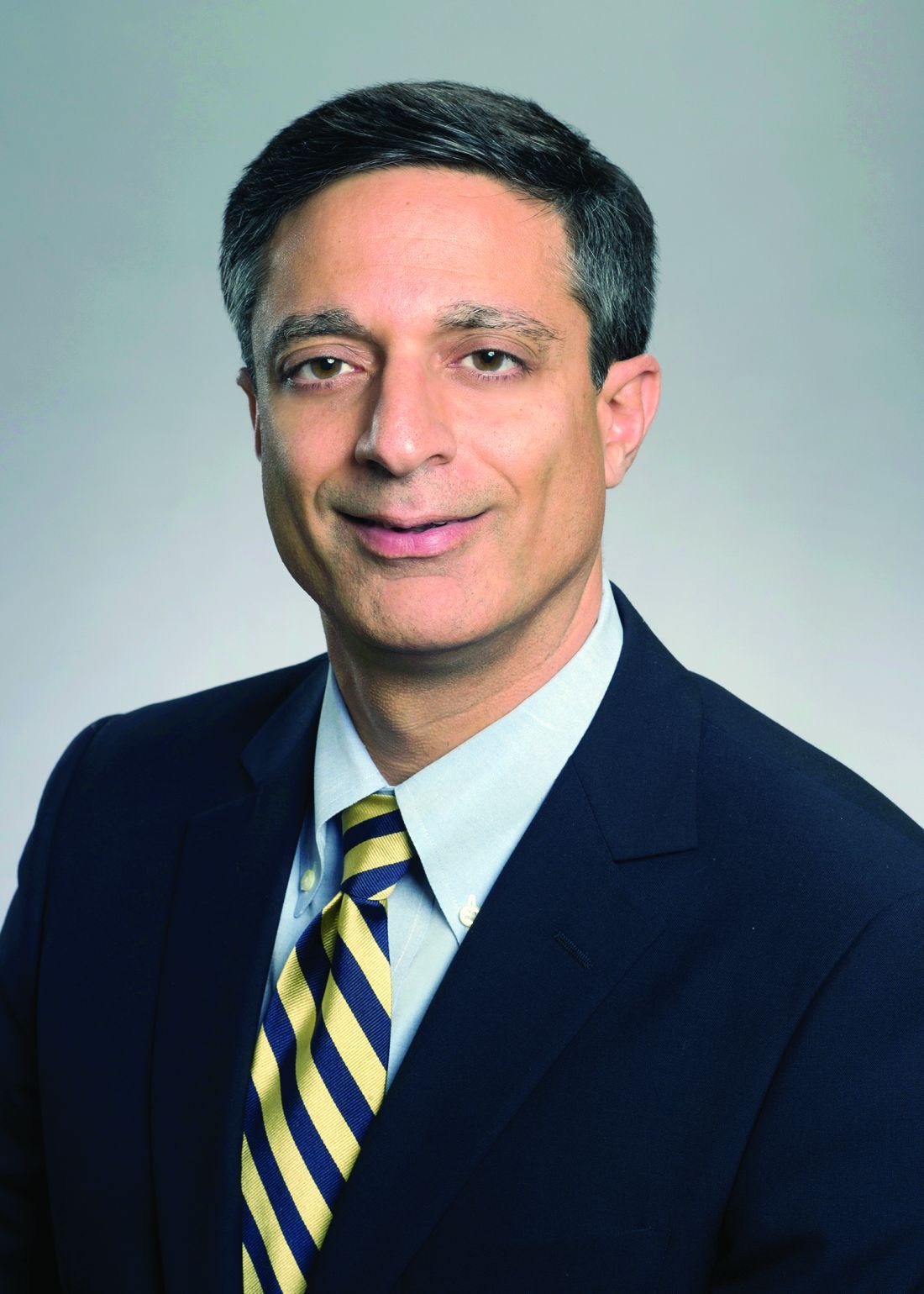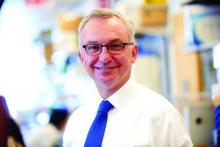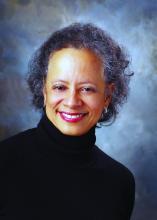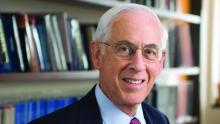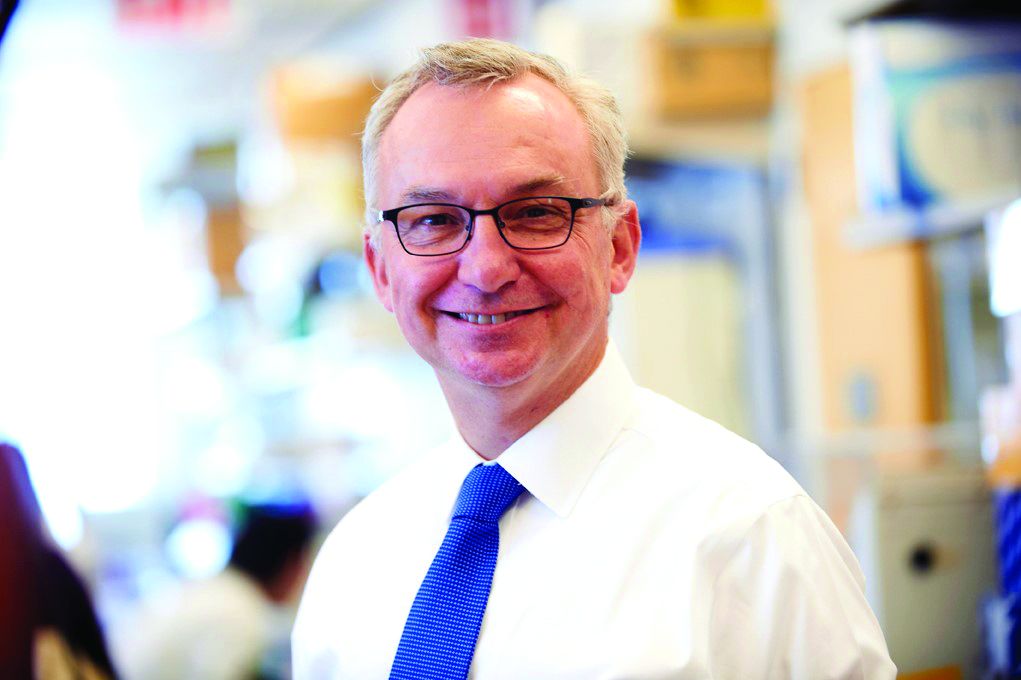User login
NCCN and MD Anderson award funding to researchers
The National Comprehensive Cancer Network (NCCN) and the University of Texas MD Anderson Cancer Center have awarded funding to investigators conducting a range of research projects looking at everything from chimeric antigen receptor T-cell therapy in lung cancer to financial toxicity to fecal microbiota transplantation.
Four researchers won funding through the NCCN Young Investigator Awards, which are supported by the NCCN Foundation, Astra Zeneca, Merck & Co., Genentech, Pfizer, and Incyte.
Prasanna Ananth, MD, of Yale Cancer Center in New Haven, Conn., won funding for her work investigating benchmarks for high quality end-of-life care in children with cancer.
Jaehyuk Choi, MD, PhD, of Northwestern University in Chicago won for his research investigating genomic determinants of response to immunotherapy in Merkel cell carcinoma.
Kedar Kirtane, MD, of Moffitt Cancer Center in Tampa won for his work on a digitized peer-to-peer patient support system for patients with locally advanced head and neck cancer who are receiving chemoradiation.
Yanming Li, PhD, of the University of Michigan in Ann Arbor won for network genome-wide association studies for early detection of cancers.
Meanwhile, the University of Texas MD Anderson Cancer Center named eight researchers to this year’s class of Andrew Sabin Family Fellows. Each researcher will receive $100,000 in funding over 2 years through a $30-million endowment from the Andrew Sabin Family Foundation.
Lauren Averett Byers, MD, is conducting research on the first chimeric antigen receptor T-cell therapy for small cell lung cancer.
Florencia McAllister, MD, is studying the intratumoral bacteria detected in pancreatic cancer patients and the use of fecal microbial transplants to improve treatment outcomes.
Jose Alejandro Rauh-Hain, MD, is attempting to improve gynecologic genetic testing and risk-reduction interventions in underserved populations.
Grace Li Smith, MD, PhD, is researching financial toxicity in patients with early-stage breast cancer who are treated with short-course versus standard adjuvant radiation.
Ishwaria Mohan Subbiah, MD, is investigating a personalized, technology-enhanced symptom-management strategy to provide holistic care for patients on phase 1 trials.
Andrea Viale, MD, is studying the effects of transient inflammation and the role of epithelial memory during progression of pancreatic ductal adenocarcinoma.
Linghua Wang, PhD, is investigating TIM-3 as a potential target for treating peritoneal carcinomatosis in patients with advanced gastric cancer.
Yinghong Wang, MD, PhD, is researching fecal microbiota transplantation as an option for managing immune-mediated colitis following cancer immunotherapy.
Movers in Medicine highlights career moves and personal achievements by hematologists and oncologists. Did you switch jobs, take on a new role, climb a mountain? Tell us all about it at hematologynews@mdedge.com, and you could be featured in Movers in Medicine.
The National Comprehensive Cancer Network (NCCN) and the University of Texas MD Anderson Cancer Center have awarded funding to investigators conducting a range of research projects looking at everything from chimeric antigen receptor T-cell therapy in lung cancer to financial toxicity to fecal microbiota transplantation.
Four researchers won funding through the NCCN Young Investigator Awards, which are supported by the NCCN Foundation, Astra Zeneca, Merck & Co., Genentech, Pfizer, and Incyte.
Prasanna Ananth, MD, of Yale Cancer Center in New Haven, Conn., won funding for her work investigating benchmarks for high quality end-of-life care in children with cancer.
Jaehyuk Choi, MD, PhD, of Northwestern University in Chicago won for his research investigating genomic determinants of response to immunotherapy in Merkel cell carcinoma.
Kedar Kirtane, MD, of Moffitt Cancer Center in Tampa won for his work on a digitized peer-to-peer patient support system for patients with locally advanced head and neck cancer who are receiving chemoradiation.
Yanming Li, PhD, of the University of Michigan in Ann Arbor won for network genome-wide association studies for early detection of cancers.
Meanwhile, the University of Texas MD Anderson Cancer Center named eight researchers to this year’s class of Andrew Sabin Family Fellows. Each researcher will receive $100,000 in funding over 2 years through a $30-million endowment from the Andrew Sabin Family Foundation.
Lauren Averett Byers, MD, is conducting research on the first chimeric antigen receptor T-cell therapy for small cell lung cancer.
Florencia McAllister, MD, is studying the intratumoral bacteria detected in pancreatic cancer patients and the use of fecal microbial transplants to improve treatment outcomes.
Jose Alejandro Rauh-Hain, MD, is attempting to improve gynecologic genetic testing and risk-reduction interventions in underserved populations.
Grace Li Smith, MD, PhD, is researching financial toxicity in patients with early-stage breast cancer who are treated with short-course versus standard adjuvant radiation.
Ishwaria Mohan Subbiah, MD, is investigating a personalized, technology-enhanced symptom-management strategy to provide holistic care for patients on phase 1 trials.
Andrea Viale, MD, is studying the effects of transient inflammation and the role of epithelial memory during progression of pancreatic ductal adenocarcinoma.
Linghua Wang, PhD, is investigating TIM-3 as a potential target for treating peritoneal carcinomatosis in patients with advanced gastric cancer.
Yinghong Wang, MD, PhD, is researching fecal microbiota transplantation as an option for managing immune-mediated colitis following cancer immunotherapy.
Movers in Medicine highlights career moves and personal achievements by hematologists and oncologists. Did you switch jobs, take on a new role, climb a mountain? Tell us all about it at hematologynews@mdedge.com, and you could be featured in Movers in Medicine.
The National Comprehensive Cancer Network (NCCN) and the University of Texas MD Anderson Cancer Center have awarded funding to investigators conducting a range of research projects looking at everything from chimeric antigen receptor T-cell therapy in lung cancer to financial toxicity to fecal microbiota transplantation.
Four researchers won funding through the NCCN Young Investigator Awards, which are supported by the NCCN Foundation, Astra Zeneca, Merck & Co., Genentech, Pfizer, and Incyte.
Prasanna Ananth, MD, of Yale Cancer Center in New Haven, Conn., won funding for her work investigating benchmarks for high quality end-of-life care in children with cancer.
Jaehyuk Choi, MD, PhD, of Northwestern University in Chicago won for his research investigating genomic determinants of response to immunotherapy in Merkel cell carcinoma.
Kedar Kirtane, MD, of Moffitt Cancer Center in Tampa won for his work on a digitized peer-to-peer patient support system for patients with locally advanced head and neck cancer who are receiving chemoradiation.
Yanming Li, PhD, of the University of Michigan in Ann Arbor won for network genome-wide association studies for early detection of cancers.
Meanwhile, the University of Texas MD Anderson Cancer Center named eight researchers to this year’s class of Andrew Sabin Family Fellows. Each researcher will receive $100,000 in funding over 2 years through a $30-million endowment from the Andrew Sabin Family Foundation.
Lauren Averett Byers, MD, is conducting research on the first chimeric antigen receptor T-cell therapy for small cell lung cancer.
Florencia McAllister, MD, is studying the intratumoral bacteria detected in pancreatic cancer patients and the use of fecal microbial transplants to improve treatment outcomes.
Jose Alejandro Rauh-Hain, MD, is attempting to improve gynecologic genetic testing and risk-reduction interventions in underserved populations.
Grace Li Smith, MD, PhD, is researching financial toxicity in patients with early-stage breast cancer who are treated with short-course versus standard adjuvant radiation.
Ishwaria Mohan Subbiah, MD, is investigating a personalized, technology-enhanced symptom-management strategy to provide holistic care for patients on phase 1 trials.
Andrea Viale, MD, is studying the effects of transient inflammation and the role of epithelial memory during progression of pancreatic ductal adenocarcinoma.
Linghua Wang, PhD, is investigating TIM-3 as a potential target for treating peritoneal carcinomatosis in patients with advanced gastric cancer.
Yinghong Wang, MD, PhD, is researching fecal microbiota transplantation as an option for managing immune-mediated colitis following cancer immunotherapy.
Movers in Medicine highlights career moves and personal achievements by hematologists and oncologists. Did you switch jobs, take on a new role, climb a mountain? Tell us all about it at hematologynews@mdedge.com, and you could be featured in Movers in Medicine.
Researchers win Stand Up To Cancer grants
Stand Up To Cancer has awarded 1- and 2-year grants to five teams conducting cancer research.
Alan D’Andrea, MD, of the Dana-Farber Cancer Institute in Boston and Juan Cubillos-Ruiz, PhD, of Weill Cornell Medicine in New York won a 2-year grant totaling $250,000.
Dr. Cubillos-Ruiz and Dr. D’Andrea will use this funding to evaluate gene signatures controlled by phospholipid messengers and endoplasmic reticulum stress in responding and nonresponding ovarian cancer patients, and the team will use tumor organoids to test whether pharmacological inhibition of these pathways can fight ovarian cancer.
Denada Dibra, PhD, of the University of Texas MD Anderson Cancer Center in Houston and Peter Lee, MD, of City of Hope in Duarte, Calif., won a 1-year grant of $250,000.
Dr. Lee and Dr. Dibra will use mouse models to study how TP53 may influence the tumor microenvironment in triple-negative breast cancer and to characterize tumor cells and immune cells in the tumor tissue.
Maximilian Diehn, MD, PhD, of Stanford (Calif.) University and Aaron Hata, MD, PhD, of Massachusetts General Hospital Cancer Center in Boston won a 2-year grant totaling $225,000.
Dr. Hata and Dr. Diehn will work on developing a novel method for analyzing cell-free RNA associated with resistance to tyrosine kinase inhibitors in patients with non–small cell lung cancer. The team’s goal is to develop a noninvasive approach to better characterize tumors and detect phenotypic changes during treatment.
Sarah Tasian, MD, of Children’s Hospital of Philadelphia and Kimberly Stegmaier, MD, of the Dana-Farber Cancer Institute won a 2-year grant totaling $250,000, which was funded with support from the Emily Whitehead Foundation.
Dr. Stegmaier and Dr. Tasian will test chimeric antigen receptor T cells targeting two or more neoantigens in preclinical models of childhood Down syndrome–associated acute lymphoblastic leukemia and Ph-like acute lymphoblastic leukemia.
Robert Vonderheide, MD, of the University of Pennsylvania Abramson Cancer Center in Philadelphia and Vinod Balachandran, MD, of Memorial Sloan Kettering Cancer Center in New York won a 2-year grant totaling $225,000.
Dr. Balachandran and Dr. Vonderheide will analyze short- and long-term pancreatic cancer survivors, patients with primary resected pancreatic cancers and patients with mKRAS lung and colon cancers to evaluate how mKRAS immunogenicity may affect outcomes.
Movers in Medicine highlights career moves and personal achievements by hematologists and oncologists. Did you switch jobs, take on a new role, climb a mountain? Tell us all about it at hematologynews@mdedge.com, and you could be featured in Movers in Medicine.
Stand Up To Cancer has awarded 1- and 2-year grants to five teams conducting cancer research.
Alan D’Andrea, MD, of the Dana-Farber Cancer Institute in Boston and Juan Cubillos-Ruiz, PhD, of Weill Cornell Medicine in New York won a 2-year grant totaling $250,000.
Dr. Cubillos-Ruiz and Dr. D’Andrea will use this funding to evaluate gene signatures controlled by phospholipid messengers and endoplasmic reticulum stress in responding and nonresponding ovarian cancer patients, and the team will use tumor organoids to test whether pharmacological inhibition of these pathways can fight ovarian cancer.
Denada Dibra, PhD, of the University of Texas MD Anderson Cancer Center in Houston and Peter Lee, MD, of City of Hope in Duarte, Calif., won a 1-year grant of $250,000.
Dr. Lee and Dr. Dibra will use mouse models to study how TP53 may influence the tumor microenvironment in triple-negative breast cancer and to characterize tumor cells and immune cells in the tumor tissue.
Maximilian Diehn, MD, PhD, of Stanford (Calif.) University and Aaron Hata, MD, PhD, of Massachusetts General Hospital Cancer Center in Boston won a 2-year grant totaling $225,000.
Dr. Hata and Dr. Diehn will work on developing a novel method for analyzing cell-free RNA associated with resistance to tyrosine kinase inhibitors in patients with non–small cell lung cancer. The team’s goal is to develop a noninvasive approach to better characterize tumors and detect phenotypic changes during treatment.
Sarah Tasian, MD, of Children’s Hospital of Philadelphia and Kimberly Stegmaier, MD, of the Dana-Farber Cancer Institute won a 2-year grant totaling $250,000, which was funded with support from the Emily Whitehead Foundation.
Dr. Stegmaier and Dr. Tasian will test chimeric antigen receptor T cells targeting two or more neoantigens in preclinical models of childhood Down syndrome–associated acute lymphoblastic leukemia and Ph-like acute lymphoblastic leukemia.
Robert Vonderheide, MD, of the University of Pennsylvania Abramson Cancer Center in Philadelphia and Vinod Balachandran, MD, of Memorial Sloan Kettering Cancer Center in New York won a 2-year grant totaling $225,000.
Dr. Balachandran and Dr. Vonderheide will analyze short- and long-term pancreatic cancer survivors, patients with primary resected pancreatic cancers and patients with mKRAS lung and colon cancers to evaluate how mKRAS immunogenicity may affect outcomes.
Movers in Medicine highlights career moves and personal achievements by hematologists and oncologists. Did you switch jobs, take on a new role, climb a mountain? Tell us all about it at hematologynews@mdedge.com, and you could be featured in Movers in Medicine.
Stand Up To Cancer has awarded 1- and 2-year grants to five teams conducting cancer research.
Alan D’Andrea, MD, of the Dana-Farber Cancer Institute in Boston and Juan Cubillos-Ruiz, PhD, of Weill Cornell Medicine in New York won a 2-year grant totaling $250,000.
Dr. Cubillos-Ruiz and Dr. D’Andrea will use this funding to evaluate gene signatures controlled by phospholipid messengers and endoplasmic reticulum stress in responding and nonresponding ovarian cancer patients, and the team will use tumor organoids to test whether pharmacological inhibition of these pathways can fight ovarian cancer.
Denada Dibra, PhD, of the University of Texas MD Anderson Cancer Center in Houston and Peter Lee, MD, of City of Hope in Duarte, Calif., won a 1-year grant of $250,000.
Dr. Lee and Dr. Dibra will use mouse models to study how TP53 may influence the tumor microenvironment in triple-negative breast cancer and to characterize tumor cells and immune cells in the tumor tissue.
Maximilian Diehn, MD, PhD, of Stanford (Calif.) University and Aaron Hata, MD, PhD, of Massachusetts General Hospital Cancer Center in Boston won a 2-year grant totaling $225,000.
Dr. Hata and Dr. Diehn will work on developing a novel method for analyzing cell-free RNA associated with resistance to tyrosine kinase inhibitors in patients with non–small cell lung cancer. The team’s goal is to develop a noninvasive approach to better characterize tumors and detect phenotypic changes during treatment.
Sarah Tasian, MD, of Children’s Hospital of Philadelphia and Kimberly Stegmaier, MD, of the Dana-Farber Cancer Institute won a 2-year grant totaling $250,000, which was funded with support from the Emily Whitehead Foundation.
Dr. Stegmaier and Dr. Tasian will test chimeric antigen receptor T cells targeting two or more neoantigens in preclinical models of childhood Down syndrome–associated acute lymphoblastic leukemia and Ph-like acute lymphoblastic leukemia.
Robert Vonderheide, MD, of the University of Pennsylvania Abramson Cancer Center in Philadelphia and Vinod Balachandran, MD, of Memorial Sloan Kettering Cancer Center in New York won a 2-year grant totaling $225,000.
Dr. Balachandran and Dr. Vonderheide will analyze short- and long-term pancreatic cancer survivors, patients with primary resected pancreatic cancers and patients with mKRAS lung and colon cancers to evaluate how mKRAS immunogenicity may affect outcomes.
Movers in Medicine highlights career moves and personal achievements by hematologists and oncologists. Did you switch jobs, take on a new role, climb a mountain? Tell us all about it at hematologynews@mdedge.com, and you could be featured in Movers in Medicine.
Researchers to be honored at ASPHO
Several hematology and oncology researchers will receive awards at the 2019 conference of the American Society of Pediatric Hematology/Oncology (ASPHO), which takes place May 1-4.
Loretta Li, MD, of Boston Children’s Hospital/Dana-Farber Cancer Institute, and Akshay Sharma, MBBS, of St. Jude Children’s Research Hospital in Memphis, will receive Young Investigator awards at the conference.
Dr. Sharma is conducting research investigating the genetic regulation of fetal hemoglobin and developing transplant and gene therapy trials for patients with sickle cell disease. Dr. Li is studying the activity of JAK2 inhibitors, as well as mechanisms of response and resistance to these drugs, in leukemias.
Elliott Vichinsky, MD, of UCSF Benioff Children’s Hospital Oakland in California, will receive ASPHO’s Distinguished Career Award. Dr. Vichinsky has helped implement newborn screening programs for blood diseases, developed techniques to make blood safer for chronically transfused patients, and conducted research that furthered the development of drugs used to treat iron overload.
Wilbur Lam, MD, PhD, of Aflac Cancer & Blood Disorders Center/Emory University in Atlanta, has won the Frank A. Oski Memorial Lectureship. He will present “Development and Clinical Translation of Engineered Microsystems for Hematologic Applications” on May 2.
Dr. Lam’s research has focused on using nanomechanical and microfluidic engineering approaches to study blood cells, endothelial cells, and thrombosis. Dr. Lam and his lab have created “microvasculature-on-a-chip” models of blood diseases and a smartphone app that can detect and monitor anemia.
Kenneth McClain, MD, PhD, of Texas Children’s Hospital/Baylor University in Houston, has won the 2019 George R. Buchanan Lectureship. Dr. McClain will present “An Oncogene-Driven Orphan Disease: A Short History of Langerhans Cell Histiocytosis” on May 2.
Dr. McClain’s research has focused on Langerhans cell histiocytosis and related disorders. He has served as a founding member and president of the Histiocyte Society, and he organizes yearly events to provide information on Langerhans cell histiocytosis to patients and their families.
Smita Bhatia, MD, of University of Alabama, Birmingham, has won the Childhood Cancer Survivorship Award for Excellence. Her research has focused on health‐related outcomes in cancer survivors and the pathogenesis of these outcomes. Dr. Bhatia has developed models that can identify high-risk cancer survivors and interventions that can reduce complications among cancer survivors.
Movers in Medicine highlights career moves and personal achievements by hematologists and oncologists. Did you switch jobs, take on a new role, climb a mountain? Tell us all about it at hematologynews@mdedge.com, and you could be featured in Movers in Medicine.
Several hematology and oncology researchers will receive awards at the 2019 conference of the American Society of Pediatric Hematology/Oncology (ASPHO), which takes place May 1-4.
Loretta Li, MD, of Boston Children’s Hospital/Dana-Farber Cancer Institute, and Akshay Sharma, MBBS, of St. Jude Children’s Research Hospital in Memphis, will receive Young Investigator awards at the conference.
Dr. Sharma is conducting research investigating the genetic regulation of fetal hemoglobin and developing transplant and gene therapy trials for patients with sickle cell disease. Dr. Li is studying the activity of JAK2 inhibitors, as well as mechanisms of response and resistance to these drugs, in leukemias.
Elliott Vichinsky, MD, of UCSF Benioff Children’s Hospital Oakland in California, will receive ASPHO’s Distinguished Career Award. Dr. Vichinsky has helped implement newborn screening programs for blood diseases, developed techniques to make blood safer for chronically transfused patients, and conducted research that furthered the development of drugs used to treat iron overload.
Wilbur Lam, MD, PhD, of Aflac Cancer & Blood Disorders Center/Emory University in Atlanta, has won the Frank A. Oski Memorial Lectureship. He will present “Development and Clinical Translation of Engineered Microsystems for Hematologic Applications” on May 2.
Dr. Lam’s research has focused on using nanomechanical and microfluidic engineering approaches to study blood cells, endothelial cells, and thrombosis. Dr. Lam and his lab have created “microvasculature-on-a-chip” models of blood diseases and a smartphone app that can detect and monitor anemia.
Kenneth McClain, MD, PhD, of Texas Children’s Hospital/Baylor University in Houston, has won the 2019 George R. Buchanan Lectureship. Dr. McClain will present “An Oncogene-Driven Orphan Disease: A Short History of Langerhans Cell Histiocytosis” on May 2.
Dr. McClain’s research has focused on Langerhans cell histiocytosis and related disorders. He has served as a founding member and president of the Histiocyte Society, and he organizes yearly events to provide information on Langerhans cell histiocytosis to patients and their families.
Smita Bhatia, MD, of University of Alabama, Birmingham, has won the Childhood Cancer Survivorship Award for Excellence. Her research has focused on health‐related outcomes in cancer survivors and the pathogenesis of these outcomes. Dr. Bhatia has developed models that can identify high-risk cancer survivors and interventions that can reduce complications among cancer survivors.
Movers in Medicine highlights career moves and personal achievements by hematologists and oncologists. Did you switch jobs, take on a new role, climb a mountain? Tell us all about it at hematologynews@mdedge.com, and you could be featured in Movers in Medicine.
Several hematology and oncology researchers will receive awards at the 2019 conference of the American Society of Pediatric Hematology/Oncology (ASPHO), which takes place May 1-4.
Loretta Li, MD, of Boston Children’s Hospital/Dana-Farber Cancer Institute, and Akshay Sharma, MBBS, of St. Jude Children’s Research Hospital in Memphis, will receive Young Investigator awards at the conference.
Dr. Sharma is conducting research investigating the genetic regulation of fetal hemoglobin and developing transplant and gene therapy trials for patients with sickle cell disease. Dr. Li is studying the activity of JAK2 inhibitors, as well as mechanisms of response and resistance to these drugs, in leukemias.
Elliott Vichinsky, MD, of UCSF Benioff Children’s Hospital Oakland in California, will receive ASPHO’s Distinguished Career Award. Dr. Vichinsky has helped implement newborn screening programs for blood diseases, developed techniques to make blood safer for chronically transfused patients, and conducted research that furthered the development of drugs used to treat iron overload.
Wilbur Lam, MD, PhD, of Aflac Cancer & Blood Disorders Center/Emory University in Atlanta, has won the Frank A. Oski Memorial Lectureship. He will present “Development and Clinical Translation of Engineered Microsystems for Hematologic Applications” on May 2.
Dr. Lam’s research has focused on using nanomechanical and microfluidic engineering approaches to study blood cells, endothelial cells, and thrombosis. Dr. Lam and his lab have created “microvasculature-on-a-chip” models of blood diseases and a smartphone app that can detect and monitor anemia.
Kenneth McClain, MD, PhD, of Texas Children’s Hospital/Baylor University in Houston, has won the 2019 George R. Buchanan Lectureship. Dr. McClain will present “An Oncogene-Driven Orphan Disease: A Short History of Langerhans Cell Histiocytosis” on May 2.
Dr. McClain’s research has focused on Langerhans cell histiocytosis and related disorders. He has served as a founding member and president of the Histiocyte Society, and he organizes yearly events to provide information on Langerhans cell histiocytosis to patients and their families.
Smita Bhatia, MD, of University of Alabama, Birmingham, has won the Childhood Cancer Survivorship Award for Excellence. Her research has focused on health‐related outcomes in cancer survivors and the pathogenesis of these outcomes. Dr. Bhatia has developed models that can identify high-risk cancer survivors and interventions that can reduce complications among cancer survivors.
Movers in Medicine highlights career moves and personal achievements by hematologists and oncologists. Did you switch jobs, take on a new role, climb a mountain? Tell us all about it at hematologynews@mdedge.com, and you could be featured in Movers in Medicine.
New leaders at SGO, AACR
The Society of Gynecologic Oncology (SGO) has a new leader at the helm.
Warner K. Huh, MD, of the University of Alabama at Birmingham, has been named president of the SGO. Dr. Huh began his 1-year term at the end of SGO’s Annual Meeting on Women’s Cancer, which took place in March 2019.
Dr. Huh said he plans to focus his presidency on the changing practice of gynecologic oncology, including surgery and novel therapies, clinical trial mentorship, subspecialty awareness, alternative payment models, and the role of gynecologic oncologists in benign gynecologic surgery.
Another newly installed president is Elaine R. Mardis, PhD, of Nationwide Children’s Hospital in Columbus, Ohio. Dr. Mardis was named president of the American Association for Cancer Research (AACR) for 2019-2020.
She has conducted extensive research on the genomic characterization of various cancers. She was inaugurated as AACR president during the AACR’s annual meeting, which took place March 29-April 3, 2019.
Also at the AACR annual meeting, Antoni Ribas, MD, PhD, of the University of California, Los Angeles, was inducted as president-elect of AACR. Dr. Ribas will assume the presidency in April 2020. He has conducted research focused on malignant melanoma and is said to have been “instrumental” in the development of several drugs used to treat the disease.
In other news, the National Comprehensive Cancer Network (NCCN) named Ronald Walters, MD, chair of its board of directors, and Ruth O’Regan, MD, was named vice chair.
Dr. Walters, of the University of Texas MD Anderson Cancer Center in Houston, conducts research focused on health care reform and cost accounting in health care.
Dr. O’Regan, of the University of Wisconsin Carbone Cancer Center in Madison, conducts research focused on identifying mechanisms of treatment resistance and developing new therapies for breast cancer.
Finally, Giulio F. Draetta, MD, PhD, was named chief scientific officer at the University of Texas MD Anderson Cancer Center. This is a new position that “champions innovation, develops strong partnerships, and provides focused leadership on the science and clinical translation of research programs,” according to MD Anderson.
Dr. Draetta conducted “fundamental” research on the eukaryotic cell division cycle and DNA damage-induced checkpoints. He has cofounded and led biotechnology companies and headed drug discovery and development programs that led to two drug approvals, according to MD Anderson.
Movers in Medicine highlights career moves and personal achievements by hematologists and oncologists. Did you switch jobs, take on a new role, climb a mountain? Tell us all about it at hematologynews@mdedge.com, and you could be featured in Movers in Medicine.
The Society of Gynecologic Oncology (SGO) has a new leader at the helm.
Warner K. Huh, MD, of the University of Alabama at Birmingham, has been named president of the SGO. Dr. Huh began his 1-year term at the end of SGO’s Annual Meeting on Women’s Cancer, which took place in March 2019.
Dr. Huh said he plans to focus his presidency on the changing practice of gynecologic oncology, including surgery and novel therapies, clinical trial mentorship, subspecialty awareness, alternative payment models, and the role of gynecologic oncologists in benign gynecologic surgery.
Another newly installed president is Elaine R. Mardis, PhD, of Nationwide Children’s Hospital in Columbus, Ohio. Dr. Mardis was named president of the American Association for Cancer Research (AACR) for 2019-2020.
She has conducted extensive research on the genomic characterization of various cancers. She was inaugurated as AACR president during the AACR’s annual meeting, which took place March 29-April 3, 2019.
Also at the AACR annual meeting, Antoni Ribas, MD, PhD, of the University of California, Los Angeles, was inducted as president-elect of AACR. Dr. Ribas will assume the presidency in April 2020. He has conducted research focused on malignant melanoma and is said to have been “instrumental” in the development of several drugs used to treat the disease.
In other news, the National Comprehensive Cancer Network (NCCN) named Ronald Walters, MD, chair of its board of directors, and Ruth O’Regan, MD, was named vice chair.
Dr. Walters, of the University of Texas MD Anderson Cancer Center in Houston, conducts research focused on health care reform and cost accounting in health care.
Dr. O’Regan, of the University of Wisconsin Carbone Cancer Center in Madison, conducts research focused on identifying mechanisms of treatment resistance and developing new therapies for breast cancer.
Finally, Giulio F. Draetta, MD, PhD, was named chief scientific officer at the University of Texas MD Anderson Cancer Center. This is a new position that “champions innovation, develops strong partnerships, and provides focused leadership on the science and clinical translation of research programs,” according to MD Anderson.
Dr. Draetta conducted “fundamental” research on the eukaryotic cell division cycle and DNA damage-induced checkpoints. He has cofounded and led biotechnology companies and headed drug discovery and development programs that led to two drug approvals, according to MD Anderson.
Movers in Medicine highlights career moves and personal achievements by hematologists and oncologists. Did you switch jobs, take on a new role, climb a mountain? Tell us all about it at hematologynews@mdedge.com, and you could be featured in Movers in Medicine.
The Society of Gynecologic Oncology (SGO) has a new leader at the helm.
Warner K. Huh, MD, of the University of Alabama at Birmingham, has been named president of the SGO. Dr. Huh began his 1-year term at the end of SGO’s Annual Meeting on Women’s Cancer, which took place in March 2019.
Dr. Huh said he plans to focus his presidency on the changing practice of gynecologic oncology, including surgery and novel therapies, clinical trial mentorship, subspecialty awareness, alternative payment models, and the role of gynecologic oncologists in benign gynecologic surgery.
Another newly installed president is Elaine R. Mardis, PhD, of Nationwide Children’s Hospital in Columbus, Ohio. Dr. Mardis was named president of the American Association for Cancer Research (AACR) for 2019-2020.
She has conducted extensive research on the genomic characterization of various cancers. She was inaugurated as AACR president during the AACR’s annual meeting, which took place March 29-April 3, 2019.
Also at the AACR annual meeting, Antoni Ribas, MD, PhD, of the University of California, Los Angeles, was inducted as president-elect of AACR. Dr. Ribas will assume the presidency in April 2020. He has conducted research focused on malignant melanoma and is said to have been “instrumental” in the development of several drugs used to treat the disease.
In other news, the National Comprehensive Cancer Network (NCCN) named Ronald Walters, MD, chair of its board of directors, and Ruth O’Regan, MD, was named vice chair.
Dr. Walters, of the University of Texas MD Anderson Cancer Center in Houston, conducts research focused on health care reform and cost accounting in health care.
Dr. O’Regan, of the University of Wisconsin Carbone Cancer Center in Madison, conducts research focused on identifying mechanisms of treatment resistance and developing new therapies for breast cancer.
Finally, Giulio F. Draetta, MD, PhD, was named chief scientific officer at the University of Texas MD Anderson Cancer Center. This is a new position that “champions innovation, develops strong partnerships, and provides focused leadership on the science and clinical translation of research programs,” according to MD Anderson.
Dr. Draetta conducted “fundamental” research on the eukaryotic cell division cycle and DNA damage-induced checkpoints. He has cofounded and led biotechnology companies and headed drug discovery and development programs that led to two drug approvals, according to MD Anderson.
Movers in Medicine highlights career moves and personal achievements by hematologists and oncologists. Did you switch jobs, take on a new role, climb a mountain? Tell us all about it at hematologynews@mdedge.com, and you could be featured in Movers in Medicine.
Cancer researchers take home AACR honors
The American Association for Cancer Research (AACR) has granted 14 awards and lectureships to cancer researchers and plans to recognize the recipients at the annual meeting of the American Association for Cancer Research.
Emil J. Freireich, MD, of the University of Texas MD Anderson Cancer Center in Houston, has won the 16th AACR Award for Lifetime Achievement in Cancer Research. AACR cited Dr. Freireich’s contributions related to leukocyte and allogeneic platelet transfusions, engraftment of peripheral blood stem cells, and combination chemotherapy approaches in the treatment of childhood leukemia. Dr. Freireich will receive the award during the opening ceremony of the meeting on March 31.
Another award to be given at the opening ceremony is the 13th Margaret Foti Award for Leadership and Extraordinary Achievements in Cancer Research. Raymond N. DuBois, MD, PhD, of the Medical University of South Carolina in Charleston, will receive the award for his contributions to the “early detection, interception, and prevention of colorectal cancer.” This includes elucidating the role of prostaglandins and cyclooxygenase in colon cancer tumorigenesis and pioneering the use of nonsteroidal anti-inflammatory mediators for cancer prevention. Dr. DuBois will deliver the lecture “Inflammation and Inflammatory Mediators as Potential Targets for Cancer Prevention or Interception” on April 1.
Jennifer R. Grandis, MD, of the University of California, San Francisco, has won the 22nd AACR–Women in Cancer Research Charlotte Friend Memorial Lectureship. Dr. Grandis characterized the role of EGFR, STAT3, and other signaling pathways in head and neck squamous cell carcinoma and used the findings to uncover new treatment options. Dr. Grandis will deliver her award lecture, “Leveraging Biologic Insights to Prevent and Treat Head and Neck Cancer,” on March 30.
John M. Carethers, MD, of the University of Michigan in Ann Arbor, has won the 14th AACR–Minorities in Cancer Research Jane Cooke Wright Memorial Lectureship. Dr. Carethers is being recognized for his work related to DNA mismatch repair, tumor resistance, inflammation, and health disparities in colorectal cancer patients. He will deliver his award lecture, “A Role for Inflammation-Induced DNA Mismatch Repair Deficits in Racial Outcomes from Advanced Colorectal Cancer,” on March 31.
Susan L. Cohn, MD, of the University of Chicago, has won the 24th AACR–Joseph H. Burchenal Memorial Award for Outstanding Achievement in Clinical Cancer Research (supported by Bristol-Myers Squibb). She won this award for her work in refining pediatric cancer risk-group classification, making discoveries that changed treatment strategies, and creating computational frameworks that enabled data collection and sharing. Dr. Cohn will deliver her award lecture, “Advancing Treatment Through Collaboration: A Pediatric Oncology Paradigm,” on April 2.
Another awardee to be recognized at the meeting is Alberto Mantovani, MD, a professor at Humanitas University in Milan, Italy, who won the 22nd Pezcoller Foundation–AACR International Award for Extraordinary Achievement in Cancer Research (supported by the Pezcoller Foundation).
Jeffrey A. Bluestone, PhD, of the University of California, San Francisco, won the 15th AACR–Irving Weinstein Foundation Distinguished Lecture (supported by the Irving Weinstein Foundation).
Andrew T. Chan, MD, of Massachusetts General Hospital in Boston, won the Third AACR–Waun Ki Hong Award for Outstanding Achievement in Translational and Clinical Cancer Research.
Elaine Fuchs, PhD, of Rockefeller University in New York, won the 59th AACR G.H.A. Clowes Memorial Award (supported by Lilly Oncology).
Charles L. Sawyers, MD, of the Memorial Sloan Kettering Cancer Center in New York, won the 13th AACR Princess Takamatsu Memorial Lectureship (supported by the Princess Takamatsu Cancer Research Fund).
Michael E. Jung, PhD, of the University of California, Los Angeles, won the 13th AACR Award for Outstanding Achievement in Chemistry in Cancer Research.
Cornelis J.M. Melief, MD, PhD, of Leiden (the Netherlands) University Medical Center and ISA Pharmaceuticals, also in Leiden, won the Seventh AACR–Cancer Research Institute Lloyd J. Old Award in Cancer Immunology (supported by the Cancer Research Institute).
Edward L. Giovannucci, MD, of the Harvard T.H. Chan School of Public Health in Boston, won the 28th AACR-American Cancer Society Award for Research Excellence in Cancer Epidemiology and Prevention (supported by the American Cancer Society).
Melissa M. Hudson, MD, and 15 other researchers from St. Jude Children’s Research Hospital in Memphis won the 13th AACR Team Science Award (supported by Lilly Oncology).
Movers in Medicine highlights career moves and personal achievements by hematologists and oncologists. Did you switch jobs, take on a new role, climb a mountain? Tell us all about it at hematologynews@mdedge.com, and you could be featured in Movers in Medicine.
The American Association for Cancer Research (AACR) has granted 14 awards and lectureships to cancer researchers and plans to recognize the recipients at the annual meeting of the American Association for Cancer Research.
Emil J. Freireich, MD, of the University of Texas MD Anderson Cancer Center in Houston, has won the 16th AACR Award for Lifetime Achievement in Cancer Research. AACR cited Dr. Freireich’s contributions related to leukocyte and allogeneic platelet transfusions, engraftment of peripheral blood stem cells, and combination chemotherapy approaches in the treatment of childhood leukemia. Dr. Freireich will receive the award during the opening ceremony of the meeting on March 31.
Another award to be given at the opening ceremony is the 13th Margaret Foti Award for Leadership and Extraordinary Achievements in Cancer Research. Raymond N. DuBois, MD, PhD, of the Medical University of South Carolina in Charleston, will receive the award for his contributions to the “early detection, interception, and prevention of colorectal cancer.” This includes elucidating the role of prostaglandins and cyclooxygenase in colon cancer tumorigenesis and pioneering the use of nonsteroidal anti-inflammatory mediators for cancer prevention. Dr. DuBois will deliver the lecture “Inflammation and Inflammatory Mediators as Potential Targets for Cancer Prevention or Interception” on April 1.
Jennifer R. Grandis, MD, of the University of California, San Francisco, has won the 22nd AACR–Women in Cancer Research Charlotte Friend Memorial Lectureship. Dr. Grandis characterized the role of EGFR, STAT3, and other signaling pathways in head and neck squamous cell carcinoma and used the findings to uncover new treatment options. Dr. Grandis will deliver her award lecture, “Leveraging Biologic Insights to Prevent and Treat Head and Neck Cancer,” on March 30.
John M. Carethers, MD, of the University of Michigan in Ann Arbor, has won the 14th AACR–Minorities in Cancer Research Jane Cooke Wright Memorial Lectureship. Dr. Carethers is being recognized for his work related to DNA mismatch repair, tumor resistance, inflammation, and health disparities in colorectal cancer patients. He will deliver his award lecture, “A Role for Inflammation-Induced DNA Mismatch Repair Deficits in Racial Outcomes from Advanced Colorectal Cancer,” on March 31.
Susan L. Cohn, MD, of the University of Chicago, has won the 24th AACR–Joseph H. Burchenal Memorial Award for Outstanding Achievement in Clinical Cancer Research (supported by Bristol-Myers Squibb). She won this award for her work in refining pediatric cancer risk-group classification, making discoveries that changed treatment strategies, and creating computational frameworks that enabled data collection and sharing. Dr. Cohn will deliver her award lecture, “Advancing Treatment Through Collaboration: A Pediatric Oncology Paradigm,” on April 2.
Another awardee to be recognized at the meeting is Alberto Mantovani, MD, a professor at Humanitas University in Milan, Italy, who won the 22nd Pezcoller Foundation–AACR International Award for Extraordinary Achievement in Cancer Research (supported by the Pezcoller Foundation).
Jeffrey A. Bluestone, PhD, of the University of California, San Francisco, won the 15th AACR–Irving Weinstein Foundation Distinguished Lecture (supported by the Irving Weinstein Foundation).
Andrew T. Chan, MD, of Massachusetts General Hospital in Boston, won the Third AACR–Waun Ki Hong Award for Outstanding Achievement in Translational and Clinical Cancer Research.
Elaine Fuchs, PhD, of Rockefeller University in New York, won the 59th AACR G.H.A. Clowes Memorial Award (supported by Lilly Oncology).
Charles L. Sawyers, MD, of the Memorial Sloan Kettering Cancer Center in New York, won the 13th AACR Princess Takamatsu Memorial Lectureship (supported by the Princess Takamatsu Cancer Research Fund).
Michael E. Jung, PhD, of the University of California, Los Angeles, won the 13th AACR Award for Outstanding Achievement in Chemistry in Cancer Research.
Cornelis J.M. Melief, MD, PhD, of Leiden (the Netherlands) University Medical Center and ISA Pharmaceuticals, also in Leiden, won the Seventh AACR–Cancer Research Institute Lloyd J. Old Award in Cancer Immunology (supported by the Cancer Research Institute).
Edward L. Giovannucci, MD, of the Harvard T.H. Chan School of Public Health in Boston, won the 28th AACR-American Cancer Society Award for Research Excellence in Cancer Epidemiology and Prevention (supported by the American Cancer Society).
Melissa M. Hudson, MD, and 15 other researchers from St. Jude Children’s Research Hospital in Memphis won the 13th AACR Team Science Award (supported by Lilly Oncology).
Movers in Medicine highlights career moves and personal achievements by hematologists and oncologists. Did you switch jobs, take on a new role, climb a mountain? Tell us all about it at hematologynews@mdedge.com, and you could be featured in Movers in Medicine.
The American Association for Cancer Research (AACR) has granted 14 awards and lectureships to cancer researchers and plans to recognize the recipients at the annual meeting of the American Association for Cancer Research.
Emil J. Freireich, MD, of the University of Texas MD Anderson Cancer Center in Houston, has won the 16th AACR Award for Lifetime Achievement in Cancer Research. AACR cited Dr. Freireich’s contributions related to leukocyte and allogeneic platelet transfusions, engraftment of peripheral blood stem cells, and combination chemotherapy approaches in the treatment of childhood leukemia. Dr. Freireich will receive the award during the opening ceremony of the meeting on March 31.
Another award to be given at the opening ceremony is the 13th Margaret Foti Award for Leadership and Extraordinary Achievements in Cancer Research. Raymond N. DuBois, MD, PhD, of the Medical University of South Carolina in Charleston, will receive the award for his contributions to the “early detection, interception, and prevention of colorectal cancer.” This includes elucidating the role of prostaglandins and cyclooxygenase in colon cancer tumorigenesis and pioneering the use of nonsteroidal anti-inflammatory mediators for cancer prevention. Dr. DuBois will deliver the lecture “Inflammation and Inflammatory Mediators as Potential Targets for Cancer Prevention or Interception” on April 1.
Jennifer R. Grandis, MD, of the University of California, San Francisco, has won the 22nd AACR–Women in Cancer Research Charlotte Friend Memorial Lectureship. Dr. Grandis characterized the role of EGFR, STAT3, and other signaling pathways in head and neck squamous cell carcinoma and used the findings to uncover new treatment options. Dr. Grandis will deliver her award lecture, “Leveraging Biologic Insights to Prevent and Treat Head and Neck Cancer,” on March 30.
John M. Carethers, MD, of the University of Michigan in Ann Arbor, has won the 14th AACR–Minorities in Cancer Research Jane Cooke Wright Memorial Lectureship. Dr. Carethers is being recognized for his work related to DNA mismatch repair, tumor resistance, inflammation, and health disparities in colorectal cancer patients. He will deliver his award lecture, “A Role for Inflammation-Induced DNA Mismatch Repair Deficits in Racial Outcomes from Advanced Colorectal Cancer,” on March 31.
Susan L. Cohn, MD, of the University of Chicago, has won the 24th AACR–Joseph H. Burchenal Memorial Award for Outstanding Achievement in Clinical Cancer Research (supported by Bristol-Myers Squibb). She won this award for her work in refining pediatric cancer risk-group classification, making discoveries that changed treatment strategies, and creating computational frameworks that enabled data collection and sharing. Dr. Cohn will deliver her award lecture, “Advancing Treatment Through Collaboration: A Pediatric Oncology Paradigm,” on April 2.
Another awardee to be recognized at the meeting is Alberto Mantovani, MD, a professor at Humanitas University in Milan, Italy, who won the 22nd Pezcoller Foundation–AACR International Award for Extraordinary Achievement in Cancer Research (supported by the Pezcoller Foundation).
Jeffrey A. Bluestone, PhD, of the University of California, San Francisco, won the 15th AACR–Irving Weinstein Foundation Distinguished Lecture (supported by the Irving Weinstein Foundation).
Andrew T. Chan, MD, of Massachusetts General Hospital in Boston, won the Third AACR–Waun Ki Hong Award for Outstanding Achievement in Translational and Clinical Cancer Research.
Elaine Fuchs, PhD, of Rockefeller University in New York, won the 59th AACR G.H.A. Clowes Memorial Award (supported by Lilly Oncology).
Charles L. Sawyers, MD, of the Memorial Sloan Kettering Cancer Center in New York, won the 13th AACR Princess Takamatsu Memorial Lectureship (supported by the Princess Takamatsu Cancer Research Fund).
Michael E. Jung, PhD, of the University of California, Los Angeles, won the 13th AACR Award for Outstanding Achievement in Chemistry in Cancer Research.
Cornelis J.M. Melief, MD, PhD, of Leiden (the Netherlands) University Medical Center and ISA Pharmaceuticals, also in Leiden, won the Seventh AACR–Cancer Research Institute Lloyd J. Old Award in Cancer Immunology (supported by the Cancer Research Institute).
Edward L. Giovannucci, MD, of the Harvard T.H. Chan School of Public Health in Boston, won the 28th AACR-American Cancer Society Award for Research Excellence in Cancer Epidemiology and Prevention (supported by the American Cancer Society).
Melissa M. Hudson, MD, and 15 other researchers from St. Jude Children’s Research Hospital in Memphis won the 13th AACR Team Science Award (supported by Lilly Oncology).
Movers in Medicine highlights career moves and personal achievements by hematologists and oncologists. Did you switch jobs, take on a new role, climb a mountain? Tell us all about it at hematologynews@mdedge.com, and you could be featured in Movers in Medicine.
Early career researchers win funding
John Krais, PhD, a researcher at Fox Chase Cancer Center in Philadelphia, has received a $75,000 grant from the Ovarian Cancer Research Alliance.
Dr. Krais received the 2-year grant to fund his investigation into DNA repair processes in BRCA1-mutant cancers, which will focus on the RNF168 protein.
Seven other early career researchers have joined the Parker Institute for Cancer Immunotherapy as part of the Parker Scholars, Parker Bridge Scholars, and Parker Fellows programs.
These researchers will receive a total of up to $3.1 million in funding to further their research on immunotherapies for cancers. Cécile Alanio, MD, PhD, a Parker Bridge Scholar at the University of Pennsylvania in Philadelphia, is researching the impact of infections on T cells in healthy patients with the goal of revealing new approaches to immunotherapy for cancer patients.
Kenneth Hu, PhD, a Parker Scholar at the University of California, San Francisco, plans to use single-cell profiling and microscopy to gain a better understanding of immune cells’ interactions in the tumor microenvironment.
Xihao (Sherlock) Hu, PhD, a Parker Scholar at the Dana-Farber Cancer Institute in Boston, plans to study the interactions between tumor antigens and tumor-infiltrating B cells.
Justin Eyquem, PhD, a Parker Fellow at the University of California, San Francisco, plans to use a genome-editing platform he developed to improve the function of chimeric antigen receptor (CAR) T cells in solid tumors.
Tijana Martinov, PhD, a Parker Scholar at Fred Hutchinson Cancer Research Center in Seattle, is seeking to produce T cells that can target multiple myeloma cells.
Sierra McDonald, a PhD candidate and Parker Scholar at the University of Pennsylvania, is investigating ways to improve responses to CAR T-cell therapy by studying the HMG-box family of proteins.
Roberta Zappasodi, PhD, of Memorial Sloan Kettering Cancer Center in New York, is transitioning from a Parker Scholar to a Parker Bridge Scholar. She previously characterized a population of immune-suppressive T cells. Now, she is working to determine how these cells can be used to improve the efficacy of checkpoint inhibition.
Movers in Medicine highlights career moves and personal achievements by hematologists and oncologists. Did you switch jobs, take on a new role, climb a mountain? Tell us all about it at hematologynews@mdedge.com, and you could be featured in Movers in Medicine.
John Krais, PhD, a researcher at Fox Chase Cancer Center in Philadelphia, has received a $75,000 grant from the Ovarian Cancer Research Alliance.
Dr. Krais received the 2-year grant to fund his investigation into DNA repair processes in BRCA1-mutant cancers, which will focus on the RNF168 protein.
Seven other early career researchers have joined the Parker Institute for Cancer Immunotherapy as part of the Parker Scholars, Parker Bridge Scholars, and Parker Fellows programs.
These researchers will receive a total of up to $3.1 million in funding to further their research on immunotherapies for cancers. Cécile Alanio, MD, PhD, a Parker Bridge Scholar at the University of Pennsylvania in Philadelphia, is researching the impact of infections on T cells in healthy patients with the goal of revealing new approaches to immunotherapy for cancer patients.
Kenneth Hu, PhD, a Parker Scholar at the University of California, San Francisco, plans to use single-cell profiling and microscopy to gain a better understanding of immune cells’ interactions in the tumor microenvironment.
Xihao (Sherlock) Hu, PhD, a Parker Scholar at the Dana-Farber Cancer Institute in Boston, plans to study the interactions between tumor antigens and tumor-infiltrating B cells.
Justin Eyquem, PhD, a Parker Fellow at the University of California, San Francisco, plans to use a genome-editing platform he developed to improve the function of chimeric antigen receptor (CAR) T cells in solid tumors.
Tijana Martinov, PhD, a Parker Scholar at Fred Hutchinson Cancer Research Center in Seattle, is seeking to produce T cells that can target multiple myeloma cells.
Sierra McDonald, a PhD candidate and Parker Scholar at the University of Pennsylvania, is investigating ways to improve responses to CAR T-cell therapy by studying the HMG-box family of proteins.
Roberta Zappasodi, PhD, of Memorial Sloan Kettering Cancer Center in New York, is transitioning from a Parker Scholar to a Parker Bridge Scholar. She previously characterized a population of immune-suppressive T cells. Now, she is working to determine how these cells can be used to improve the efficacy of checkpoint inhibition.
Movers in Medicine highlights career moves and personal achievements by hematologists and oncologists. Did you switch jobs, take on a new role, climb a mountain? Tell us all about it at hematologynews@mdedge.com, and you could be featured in Movers in Medicine.
John Krais, PhD, a researcher at Fox Chase Cancer Center in Philadelphia, has received a $75,000 grant from the Ovarian Cancer Research Alliance.
Dr. Krais received the 2-year grant to fund his investigation into DNA repair processes in BRCA1-mutant cancers, which will focus on the RNF168 protein.
Seven other early career researchers have joined the Parker Institute for Cancer Immunotherapy as part of the Parker Scholars, Parker Bridge Scholars, and Parker Fellows programs.
These researchers will receive a total of up to $3.1 million in funding to further their research on immunotherapies for cancers. Cécile Alanio, MD, PhD, a Parker Bridge Scholar at the University of Pennsylvania in Philadelphia, is researching the impact of infections on T cells in healthy patients with the goal of revealing new approaches to immunotherapy for cancer patients.
Kenneth Hu, PhD, a Parker Scholar at the University of California, San Francisco, plans to use single-cell profiling and microscopy to gain a better understanding of immune cells’ interactions in the tumor microenvironment.
Xihao (Sherlock) Hu, PhD, a Parker Scholar at the Dana-Farber Cancer Institute in Boston, plans to study the interactions between tumor antigens and tumor-infiltrating B cells.
Justin Eyquem, PhD, a Parker Fellow at the University of California, San Francisco, plans to use a genome-editing platform he developed to improve the function of chimeric antigen receptor (CAR) T cells in solid tumors.
Tijana Martinov, PhD, a Parker Scholar at Fred Hutchinson Cancer Research Center in Seattle, is seeking to produce T cells that can target multiple myeloma cells.
Sierra McDonald, a PhD candidate and Parker Scholar at the University of Pennsylvania, is investigating ways to improve responses to CAR T-cell therapy by studying the HMG-box family of proteins.
Roberta Zappasodi, PhD, of Memorial Sloan Kettering Cancer Center in New York, is transitioning from a Parker Scholar to a Parker Bridge Scholar. She previously characterized a population of immune-suppressive T cells. Now, she is working to determine how these cells can be used to improve the efficacy of checkpoint inhibition.
Movers in Medicine highlights career moves and personal achievements by hematologists and oncologists. Did you switch jobs, take on a new role, climb a mountain? Tell us all about it at hematologynews@mdedge.com, and you could be featured in Movers in Medicine.
Cancer researchers awarded for breakthroughs
The Royal Swedish Academy of Sciences has awarded the 2019 Sjöberg Prize to Dennis J. Slamon, MD, PhD, and Brian J. Druker, MD.
The pair received the prize, which is worth $1 million, “for their groundbreaking contributions to the clinical development of targeted therapy directed against genetic aberrations in cancer.”
Dr. Slamon, a professor at the University of California, Los Angeles, conducted research that led to the development of trastuzumab as a treatment for HER2-positive breast cancer.
Dr. Druker, a professor at Oregon Health and Science University in Portland, found that imatinib could treat chronic myeloid leukemia by inhibiting BCR-ABL.
Dr. Druker and Dr. Slamon both plan to use the prize money to identify new targets for cancer therapies.
In other news, Steven A. Rosenberg, MD, PhD, of the National Cancer Institute in Bethesda, Md., won the 2019 Szent-Györgyi Prize for Progress in Cancer Research.
Dr. Rosenberg won the $25,000 prize for his “pioneering role in the development of adoptive immunotherapy to treat cancer.”
Dr. Rosenberg is credited with conducting trials of interleukin-2 that led to its U.S. approval, identifying tumor-infiltrating lymphocytes in metastatic melanoma, showing that adoptive cell transfer can prompt tumor regression in advanced melanoma and breast cancer, and being the first person to use chimeric antigen receptor (CAR) T cells to treat aggressive lymphomas.
With his current work, Dr. Rosenberg is exploring the use of adoptive cell transfer in epithelial cancers.
Dr. Rosenberg also received the 2019 Dr. Nathan Davis Award for Outstanding Government Service. He is one of eight individuals who won the award this year.
The award is named after the founding father of the American Medical Association and is given to “elected and career officials in federal, state, or municipal service whose outstanding contributions have promoted the art and science of medicine and the betterment of public health.”
Movers in Medicine highlights career moves and personal achievements by hematologists and oncologists. Did you switch jobs, take on a new role, climb a mountain? Tell us all about it at hematologynews@mdedge.com, and you could be featured in Movers in Medicine.
The Royal Swedish Academy of Sciences has awarded the 2019 Sjöberg Prize to Dennis J. Slamon, MD, PhD, and Brian J. Druker, MD.
The pair received the prize, which is worth $1 million, “for their groundbreaking contributions to the clinical development of targeted therapy directed against genetic aberrations in cancer.”
Dr. Slamon, a professor at the University of California, Los Angeles, conducted research that led to the development of trastuzumab as a treatment for HER2-positive breast cancer.
Dr. Druker, a professor at Oregon Health and Science University in Portland, found that imatinib could treat chronic myeloid leukemia by inhibiting BCR-ABL.
Dr. Druker and Dr. Slamon both plan to use the prize money to identify new targets for cancer therapies.
In other news, Steven A. Rosenberg, MD, PhD, of the National Cancer Institute in Bethesda, Md., won the 2019 Szent-Györgyi Prize for Progress in Cancer Research.
Dr. Rosenberg won the $25,000 prize for his “pioneering role in the development of adoptive immunotherapy to treat cancer.”
Dr. Rosenberg is credited with conducting trials of interleukin-2 that led to its U.S. approval, identifying tumor-infiltrating lymphocytes in metastatic melanoma, showing that adoptive cell transfer can prompt tumor regression in advanced melanoma and breast cancer, and being the first person to use chimeric antigen receptor (CAR) T cells to treat aggressive lymphomas.
With his current work, Dr. Rosenberg is exploring the use of adoptive cell transfer in epithelial cancers.
Dr. Rosenberg also received the 2019 Dr. Nathan Davis Award for Outstanding Government Service. He is one of eight individuals who won the award this year.
The award is named after the founding father of the American Medical Association and is given to “elected and career officials in federal, state, or municipal service whose outstanding contributions have promoted the art and science of medicine and the betterment of public health.”
Movers in Medicine highlights career moves and personal achievements by hematologists and oncologists. Did you switch jobs, take on a new role, climb a mountain? Tell us all about it at hematologynews@mdedge.com, and you could be featured in Movers in Medicine.
The Royal Swedish Academy of Sciences has awarded the 2019 Sjöberg Prize to Dennis J. Slamon, MD, PhD, and Brian J. Druker, MD.
The pair received the prize, which is worth $1 million, “for their groundbreaking contributions to the clinical development of targeted therapy directed against genetic aberrations in cancer.”
Dr. Slamon, a professor at the University of California, Los Angeles, conducted research that led to the development of trastuzumab as a treatment for HER2-positive breast cancer.
Dr. Druker, a professor at Oregon Health and Science University in Portland, found that imatinib could treat chronic myeloid leukemia by inhibiting BCR-ABL.
Dr. Druker and Dr. Slamon both plan to use the prize money to identify new targets for cancer therapies.
In other news, Steven A. Rosenberg, MD, PhD, of the National Cancer Institute in Bethesda, Md., won the 2019 Szent-Györgyi Prize for Progress in Cancer Research.
Dr. Rosenberg won the $25,000 prize for his “pioneering role in the development of adoptive immunotherapy to treat cancer.”
Dr. Rosenberg is credited with conducting trials of interleukin-2 that led to its U.S. approval, identifying tumor-infiltrating lymphocytes in metastatic melanoma, showing that adoptive cell transfer can prompt tumor regression in advanced melanoma and breast cancer, and being the first person to use chimeric antigen receptor (CAR) T cells to treat aggressive lymphomas.
With his current work, Dr. Rosenberg is exploring the use of adoptive cell transfer in epithelial cancers.
Dr. Rosenberg also received the 2019 Dr. Nathan Davis Award for Outstanding Government Service. He is one of eight individuals who won the award this year.
The award is named after the founding father of the American Medical Association and is given to “elected and career officials in federal, state, or municipal service whose outstanding contributions have promoted the art and science of medicine and the betterment of public health.”
Movers in Medicine highlights career moves and personal achievements by hematologists and oncologists. Did you switch jobs, take on a new role, climb a mountain? Tell us all about it at hematologynews@mdedge.com, and you could be featured in Movers in Medicine.
New ASBMT president takes the helm, more hem/onc appointments
Navneet Majhail, MD, president-elect of the American Society for Blood and Marrow Transplantation (ASBMT), will assume the office of ASBMT president at the end of February 2019.
Current ASBMT President John F. DiPersio, MD, recently announced he will be “handing over the baton” to Dr. Majhail at the Transplantation & Cellular Therapy Meetings (formerly BMT Tandem Meetings), scheduled to take place Feb. 20-24, 2019.
Dr. Majhail is director of the Cleveland Clinic’s Blood & Marrow Transplant Program, a staff physician in the department of hematology and oncology at the Taussig Cancer Institute, and a professor of medicine at the Cleveland Clinic Lerner College of Medicine.
In other news, Girish Dhall, MD, has been named division director for the Hematology-Oncology and Blood Marrow Transplantation program at the University of Alabama at Birmingham department of pediatrics and Children’s of Alabama.
Dr. Dhall is currently a pediatric hematologist-oncologist and director of the Neuro-oncology Program at Children’s Hospital of Los Angeles. He is also an associate professor of clinical pediatrics at Keck School of Medicine at the University of Southern California. Dr. Dhall is slated to assume his new position at the end of May 2019.
Aaron Schimmer, MD, PhD, has been appointed the new research director of Princess Margaret Cancer Centre in Toronto. The appointment is set to take effect Feb. 15, 2019.
Dr. Schimmer is an associate professor at the University of Toronto and a staff physician and senior scientist at the Princess Margaret Cancer Centre. He has served as the interim associate director of research at Princess Margaret since January 2018.
Charles M. Farber, MD, PhD, and Michael Anthony Scola, MD, have joined Atlantic Hematology Oncology, part of Atlantic Health System Cancer Care. Their offices are located at the Carol G. Simon Cancer Center at Morristown Medical Center in New Jersey.
Dr. Scola, an oncologist/hematologist, has been appointed director of the Atlantic Thrombosis Center, a program focused on thrombotic risk, events, and disorders. Dr. Farber, an oncologist specializing in malignant hematology, has been appointed medical director of Oncology Research Network Development for Atlantic Health System.
Movers in Medicine highlights career moves and personal achievements by hematologists and oncologists. Did you switch jobs, take on a new role, climb a mountain? Tell us all about it at hematologynews@mdedge.com , and you could be featured in Movers in Medicine.
Navneet Majhail, MD, president-elect of the American Society for Blood and Marrow Transplantation (ASBMT), will assume the office of ASBMT president at the end of February 2019.
Current ASBMT President John F. DiPersio, MD, recently announced he will be “handing over the baton” to Dr. Majhail at the Transplantation & Cellular Therapy Meetings (formerly BMT Tandem Meetings), scheduled to take place Feb. 20-24, 2019.
Dr. Majhail is director of the Cleveland Clinic’s Blood & Marrow Transplant Program, a staff physician in the department of hematology and oncology at the Taussig Cancer Institute, and a professor of medicine at the Cleveland Clinic Lerner College of Medicine.
In other news, Girish Dhall, MD, has been named division director for the Hematology-Oncology and Blood Marrow Transplantation program at the University of Alabama at Birmingham department of pediatrics and Children’s of Alabama.
Dr. Dhall is currently a pediatric hematologist-oncologist and director of the Neuro-oncology Program at Children’s Hospital of Los Angeles. He is also an associate professor of clinical pediatrics at Keck School of Medicine at the University of Southern California. Dr. Dhall is slated to assume his new position at the end of May 2019.
Aaron Schimmer, MD, PhD, has been appointed the new research director of Princess Margaret Cancer Centre in Toronto. The appointment is set to take effect Feb. 15, 2019.
Dr. Schimmer is an associate professor at the University of Toronto and a staff physician and senior scientist at the Princess Margaret Cancer Centre. He has served as the interim associate director of research at Princess Margaret since January 2018.
Charles M. Farber, MD, PhD, and Michael Anthony Scola, MD, have joined Atlantic Hematology Oncology, part of Atlantic Health System Cancer Care. Their offices are located at the Carol G. Simon Cancer Center at Morristown Medical Center in New Jersey.
Dr. Scola, an oncologist/hematologist, has been appointed director of the Atlantic Thrombosis Center, a program focused on thrombotic risk, events, and disorders. Dr. Farber, an oncologist specializing in malignant hematology, has been appointed medical director of Oncology Research Network Development for Atlantic Health System.
Movers in Medicine highlights career moves and personal achievements by hematologists and oncologists. Did you switch jobs, take on a new role, climb a mountain? Tell us all about it at hematologynews@mdedge.com , and you could be featured in Movers in Medicine.
Navneet Majhail, MD, president-elect of the American Society for Blood and Marrow Transplantation (ASBMT), will assume the office of ASBMT president at the end of February 2019.
Current ASBMT President John F. DiPersio, MD, recently announced he will be “handing over the baton” to Dr. Majhail at the Transplantation & Cellular Therapy Meetings (formerly BMT Tandem Meetings), scheduled to take place Feb. 20-24, 2019.
Dr. Majhail is director of the Cleveland Clinic’s Blood & Marrow Transplant Program, a staff physician in the department of hematology and oncology at the Taussig Cancer Institute, and a professor of medicine at the Cleveland Clinic Lerner College of Medicine.
In other news, Girish Dhall, MD, has been named division director for the Hematology-Oncology and Blood Marrow Transplantation program at the University of Alabama at Birmingham department of pediatrics and Children’s of Alabama.
Dr. Dhall is currently a pediatric hematologist-oncologist and director of the Neuro-oncology Program at Children’s Hospital of Los Angeles. He is also an associate professor of clinical pediatrics at Keck School of Medicine at the University of Southern California. Dr. Dhall is slated to assume his new position at the end of May 2019.
Aaron Schimmer, MD, PhD, has been appointed the new research director of Princess Margaret Cancer Centre in Toronto. The appointment is set to take effect Feb. 15, 2019.
Dr. Schimmer is an associate professor at the University of Toronto and a staff physician and senior scientist at the Princess Margaret Cancer Centre. He has served as the interim associate director of research at Princess Margaret since January 2018.
Charles M. Farber, MD, PhD, and Michael Anthony Scola, MD, have joined Atlantic Hematology Oncology, part of Atlantic Health System Cancer Care. Their offices are located at the Carol G. Simon Cancer Center at Morristown Medical Center in New Jersey.
Dr. Scola, an oncologist/hematologist, has been appointed director of the Atlantic Thrombosis Center, a program focused on thrombotic risk, events, and disorders. Dr. Farber, an oncologist specializing in malignant hematology, has been appointed medical director of Oncology Research Network Development for Atlantic Health System.
Movers in Medicine highlights career moves and personal achievements by hematologists and oncologists. Did you switch jobs, take on a new role, climb a mountain? Tell us all about it at hematologynews@mdedge.com , and you could be featured in Movers in Medicine.
Myeloma expert named as endowed cancer chair at Emory
Sagar Lonial, MD, an expert in the biology and treatment of multiple myeloma, was recently named as the Anne and Bernard Gray Family Chair in Cancer at Winship Cancer Institute of Emory University, Atlanta.
The endowment was created in honor of Mrs. Gray’s sister, Karen Ammons Howell, who died of breast cancer. Dr. Lonial, who joined Emory more than 20 years ago, is also the chief medical officer for Winship Cancer Institute and the chairman of the department of hematology and medical oncology. He is currently leading a global genome sequencing study for patients with newly diagnosed myeloma.
The Moffitt Cancer Center, Tampa, is taking a step toward precision medicine. They recently created the position of artificial intelligence officer. J. Ross Mitchell, PhD, is taking on the new role and is tasked with using computer science – and, specifically, artificial intelligence applications – to improve efficiency and quality of care at the center. Dr. Mitchell previously worked at the Mayo Clinic in Scottsdale, Ariz., leading medical imaging information projects, including the application of machine learning in brain tumor imaging.
Oren Cahlon, MD, a radiation oncologist at Memorial Sloan Kettering Cancer Center, New York, has been tapped as associate deputy physician in chief for the institution’s Regional Care Network. This puts Dr. Cahlon, an expert in proton therapy, in a new role overseeing outpatient clinical programs across seven locations in New York and New Jersey. Dr. Cahlon will continue in his position as vice chair of the department of radiation oncology, in which he has served since 2016.
John Barrett, MD, is the new editor in chief of the British Journal of Haematology. He begins his term in January 2019. Dr. Barrett, who is a clinical professor of medicine at George Washington University Cancer Center in Washington takes over from Finbarr E. Cotter, MBBS, PhD, who had served in the role since 2006.
The cancer community is mourning the passage of Bertrand Coiffier, MD, PhD, who died in January 2019 at the age of 71. The well-known lymphoma researcher led the team that first described the use of the R-CHOP chemotherapy regimen for the treatment of diffuse large B-cell lymphoma in 2002. Dr. Coiffier also was a founding member of the Groupe d’Etude des Lymphomes de l’Adulte (GELA), which began in Europe in 1984 to advance basic and clinical research on lymphoma in adults, and later became LYSA (Lymphoma Study Association).
Sagar Lonial, MD, an expert in the biology and treatment of multiple myeloma, was recently named as the Anne and Bernard Gray Family Chair in Cancer at Winship Cancer Institute of Emory University, Atlanta.
The endowment was created in honor of Mrs. Gray’s sister, Karen Ammons Howell, who died of breast cancer. Dr. Lonial, who joined Emory more than 20 years ago, is also the chief medical officer for Winship Cancer Institute and the chairman of the department of hematology and medical oncology. He is currently leading a global genome sequencing study for patients with newly diagnosed myeloma.
The Moffitt Cancer Center, Tampa, is taking a step toward precision medicine. They recently created the position of artificial intelligence officer. J. Ross Mitchell, PhD, is taking on the new role and is tasked with using computer science – and, specifically, artificial intelligence applications – to improve efficiency and quality of care at the center. Dr. Mitchell previously worked at the Mayo Clinic in Scottsdale, Ariz., leading medical imaging information projects, including the application of machine learning in brain tumor imaging.
Oren Cahlon, MD, a radiation oncologist at Memorial Sloan Kettering Cancer Center, New York, has been tapped as associate deputy physician in chief for the institution’s Regional Care Network. This puts Dr. Cahlon, an expert in proton therapy, in a new role overseeing outpatient clinical programs across seven locations in New York and New Jersey. Dr. Cahlon will continue in his position as vice chair of the department of radiation oncology, in which he has served since 2016.
John Barrett, MD, is the new editor in chief of the British Journal of Haematology. He begins his term in January 2019. Dr. Barrett, who is a clinical professor of medicine at George Washington University Cancer Center in Washington takes over from Finbarr E. Cotter, MBBS, PhD, who had served in the role since 2006.
The cancer community is mourning the passage of Bertrand Coiffier, MD, PhD, who died in January 2019 at the age of 71. The well-known lymphoma researcher led the team that first described the use of the R-CHOP chemotherapy regimen for the treatment of diffuse large B-cell lymphoma in 2002. Dr. Coiffier also was a founding member of the Groupe d’Etude des Lymphomes de l’Adulte (GELA), which began in Europe in 1984 to advance basic and clinical research on lymphoma in adults, and later became LYSA (Lymphoma Study Association).
Sagar Lonial, MD, an expert in the biology and treatment of multiple myeloma, was recently named as the Anne and Bernard Gray Family Chair in Cancer at Winship Cancer Institute of Emory University, Atlanta.
The endowment was created in honor of Mrs. Gray’s sister, Karen Ammons Howell, who died of breast cancer. Dr. Lonial, who joined Emory more than 20 years ago, is also the chief medical officer for Winship Cancer Institute and the chairman of the department of hematology and medical oncology. He is currently leading a global genome sequencing study for patients with newly diagnosed myeloma.
The Moffitt Cancer Center, Tampa, is taking a step toward precision medicine. They recently created the position of artificial intelligence officer. J. Ross Mitchell, PhD, is taking on the new role and is tasked with using computer science – and, specifically, artificial intelligence applications – to improve efficiency and quality of care at the center. Dr. Mitchell previously worked at the Mayo Clinic in Scottsdale, Ariz., leading medical imaging information projects, including the application of machine learning in brain tumor imaging.
Oren Cahlon, MD, a radiation oncologist at Memorial Sloan Kettering Cancer Center, New York, has been tapped as associate deputy physician in chief for the institution’s Regional Care Network. This puts Dr. Cahlon, an expert in proton therapy, in a new role overseeing outpatient clinical programs across seven locations in New York and New Jersey. Dr. Cahlon will continue in his position as vice chair of the department of radiation oncology, in which he has served since 2016.
John Barrett, MD, is the new editor in chief of the British Journal of Haematology. He begins his term in January 2019. Dr. Barrett, who is a clinical professor of medicine at George Washington University Cancer Center in Washington takes over from Finbarr E. Cotter, MBBS, PhD, who had served in the role since 2006.
The cancer community is mourning the passage of Bertrand Coiffier, MD, PhD, who died in January 2019 at the age of 71. The well-known lymphoma researcher led the team that first described the use of the R-CHOP chemotherapy regimen for the treatment of diffuse large B-cell lymphoma in 2002. Dr. Coiffier also was a founding member of the Groupe d’Etude des Lymphomes de l’Adulte (GELA), which began in Europe in 1984 to advance basic and clinical research on lymphoma in adults, and later became LYSA (Lymphoma Study Association).
Baselga moves to industry; MD Anderson mourns
Jose Baselga, MD, PhD, the former chief medical officer at Memorial Sloan Kettering Cancer Center in New York, made headlines recently by accepting a position with the drugmaker AstraZeneca.
Dr. Baselga had stepped down from his position at Memorial Sloan Kettering in September 2018 after a ProPublica investigation revealed that he had failed to disclose industry funding in dozens of instances when publishing in top medical journals. In his new role, Dr. Baselga, who acknowledged the missing disclosures but said they were unintentional, will head up the research and development unit for oncology, AstraZeneca said in a press release.
The American Society of Clinical Oncology (ASCO) has elected new leadership. Lori J. Pierce, MD, a radiation oncologist and leader in breast cancer research, is the newly elected president-elect. She will serve in that role beginning June 2019 and will end her 1-year term as president of ASCO in June 2020. Dr. Pierce is a professor and vice provost for academic and faculty affairs at the University of Michigan, Ann Arbor, and the director of the Michigan Radiation Oncology Quality Consortium.
Three physicians were also elected to the ASCO board of directors. Michael A. Thompson, MD, PhD, of Advocate Aurora Health in Milwaukee, was elected to the community oncologist seat. Elizabeth A. Mittendorf, MD, PhD, of Brigham and Women’s Hospital and the Dana-Farber Cancer Institute in Boston, was elected to the surgical oncologist seat. Ethan Basch, MD, of the University of North Carolina, was elected to the undesignated specialty seat. They will all begin 4-year terms on the board of directors starting in June 2019.
A radiation oncologist is moving up the ranks at the Centers for Medicare & Medicaid Services. Anand Shah, MD, has been named senior medical advisor for innovation at the Center for Medicare & Medicaid Innovation (CMMI), part of CMS. He had previously served as the CMMI’s chief medical officer. Dr. Shah is getting congratulations from ASCO and the American Society of Radiation Oncology (ASTRO), both of whom have a lot to say about CMMI policies such as attempts to revive the Competitive Acquisition Program for Part B drugs and alternative payment models for oncology.
Julian Schink, MD, has been appointed chief medical officer at Cancer Treatment Centers of America (CTCA). Dr. Schink, a gynecologic oncologist, joined CTCA in 2017 as chief of gynecologic oncology. Before that, he had worked at the University of Wisconsin–Madison and the Northwestern University, Chicago.
In sad news, John Mendelsohn, MD, the president emeritus of the University of Texas MD Anderson Cancer Center, died on Jan. 7 at the age of 82 years. He had been diagnosed with glioblastoma 15 months earlier. Before working in medical leadership, Dr. Mendelsohn had worked with his colleagues at the University of California, San Diego, on research to block epidermal growth factor receptors. That work led to the development of the drug cetuximab, which was approved by the Food and Drug Administration to treat advanced colorectal cancer and later head and neck cancer.
The MD Anderson community also mourned the passing of Waun Ki Hong, MD, a physician-scientist who led the institution’s division of cancer medicine during 2001-2014. He died at age 76 years. Dr. Hong, who was also a past president of the American Association for Cancer Research, was well known for advancing the fields of targeted therapy and chemoprevention.
Movers in Medicine highlights career moves and personal achievements by hematologists and oncologists. Did you switch jobs, take on a new role, climb a mountain? Tell us all about it at hematologynews@mdedge.com, and you could be featured in Movers in Medicine.
Jose Baselga, MD, PhD, the former chief medical officer at Memorial Sloan Kettering Cancer Center in New York, made headlines recently by accepting a position with the drugmaker AstraZeneca.
Dr. Baselga had stepped down from his position at Memorial Sloan Kettering in September 2018 after a ProPublica investigation revealed that he had failed to disclose industry funding in dozens of instances when publishing in top medical journals. In his new role, Dr. Baselga, who acknowledged the missing disclosures but said they were unintentional, will head up the research and development unit for oncology, AstraZeneca said in a press release.
The American Society of Clinical Oncology (ASCO) has elected new leadership. Lori J. Pierce, MD, a radiation oncologist and leader in breast cancer research, is the newly elected president-elect. She will serve in that role beginning June 2019 and will end her 1-year term as president of ASCO in June 2020. Dr. Pierce is a professor and vice provost for academic and faculty affairs at the University of Michigan, Ann Arbor, and the director of the Michigan Radiation Oncology Quality Consortium.
Three physicians were also elected to the ASCO board of directors. Michael A. Thompson, MD, PhD, of Advocate Aurora Health in Milwaukee, was elected to the community oncologist seat. Elizabeth A. Mittendorf, MD, PhD, of Brigham and Women’s Hospital and the Dana-Farber Cancer Institute in Boston, was elected to the surgical oncologist seat. Ethan Basch, MD, of the University of North Carolina, was elected to the undesignated specialty seat. They will all begin 4-year terms on the board of directors starting in June 2019.
A radiation oncologist is moving up the ranks at the Centers for Medicare & Medicaid Services. Anand Shah, MD, has been named senior medical advisor for innovation at the Center for Medicare & Medicaid Innovation (CMMI), part of CMS. He had previously served as the CMMI’s chief medical officer. Dr. Shah is getting congratulations from ASCO and the American Society of Radiation Oncology (ASTRO), both of whom have a lot to say about CMMI policies such as attempts to revive the Competitive Acquisition Program for Part B drugs and alternative payment models for oncology.
Julian Schink, MD, has been appointed chief medical officer at Cancer Treatment Centers of America (CTCA). Dr. Schink, a gynecologic oncologist, joined CTCA in 2017 as chief of gynecologic oncology. Before that, he had worked at the University of Wisconsin–Madison and the Northwestern University, Chicago.
In sad news, John Mendelsohn, MD, the president emeritus of the University of Texas MD Anderson Cancer Center, died on Jan. 7 at the age of 82 years. He had been diagnosed with glioblastoma 15 months earlier. Before working in medical leadership, Dr. Mendelsohn had worked with his colleagues at the University of California, San Diego, on research to block epidermal growth factor receptors. That work led to the development of the drug cetuximab, which was approved by the Food and Drug Administration to treat advanced colorectal cancer and later head and neck cancer.
The MD Anderson community also mourned the passing of Waun Ki Hong, MD, a physician-scientist who led the institution’s division of cancer medicine during 2001-2014. He died at age 76 years. Dr. Hong, who was also a past president of the American Association for Cancer Research, was well known for advancing the fields of targeted therapy and chemoprevention.
Movers in Medicine highlights career moves and personal achievements by hematologists and oncologists. Did you switch jobs, take on a new role, climb a mountain? Tell us all about it at hematologynews@mdedge.com, and you could be featured in Movers in Medicine.
Jose Baselga, MD, PhD, the former chief medical officer at Memorial Sloan Kettering Cancer Center in New York, made headlines recently by accepting a position with the drugmaker AstraZeneca.
Dr. Baselga had stepped down from his position at Memorial Sloan Kettering in September 2018 after a ProPublica investigation revealed that he had failed to disclose industry funding in dozens of instances when publishing in top medical journals. In his new role, Dr. Baselga, who acknowledged the missing disclosures but said they were unintentional, will head up the research and development unit for oncology, AstraZeneca said in a press release.
The American Society of Clinical Oncology (ASCO) has elected new leadership. Lori J. Pierce, MD, a radiation oncologist and leader in breast cancer research, is the newly elected president-elect. She will serve in that role beginning June 2019 and will end her 1-year term as president of ASCO in June 2020. Dr. Pierce is a professor and vice provost for academic and faculty affairs at the University of Michigan, Ann Arbor, and the director of the Michigan Radiation Oncology Quality Consortium.
Three physicians were also elected to the ASCO board of directors. Michael A. Thompson, MD, PhD, of Advocate Aurora Health in Milwaukee, was elected to the community oncologist seat. Elizabeth A. Mittendorf, MD, PhD, of Brigham and Women’s Hospital and the Dana-Farber Cancer Institute in Boston, was elected to the surgical oncologist seat. Ethan Basch, MD, of the University of North Carolina, was elected to the undesignated specialty seat. They will all begin 4-year terms on the board of directors starting in June 2019.
A radiation oncologist is moving up the ranks at the Centers for Medicare & Medicaid Services. Anand Shah, MD, has been named senior medical advisor for innovation at the Center for Medicare & Medicaid Innovation (CMMI), part of CMS. He had previously served as the CMMI’s chief medical officer. Dr. Shah is getting congratulations from ASCO and the American Society of Radiation Oncology (ASTRO), both of whom have a lot to say about CMMI policies such as attempts to revive the Competitive Acquisition Program for Part B drugs and alternative payment models for oncology.
Julian Schink, MD, has been appointed chief medical officer at Cancer Treatment Centers of America (CTCA). Dr. Schink, a gynecologic oncologist, joined CTCA in 2017 as chief of gynecologic oncology. Before that, he had worked at the University of Wisconsin–Madison and the Northwestern University, Chicago.
In sad news, John Mendelsohn, MD, the president emeritus of the University of Texas MD Anderson Cancer Center, died on Jan. 7 at the age of 82 years. He had been diagnosed with glioblastoma 15 months earlier. Before working in medical leadership, Dr. Mendelsohn had worked with his colleagues at the University of California, San Diego, on research to block epidermal growth factor receptors. That work led to the development of the drug cetuximab, which was approved by the Food and Drug Administration to treat advanced colorectal cancer and later head and neck cancer.
The MD Anderson community also mourned the passing of Waun Ki Hong, MD, a physician-scientist who led the institution’s division of cancer medicine during 2001-2014. He died at age 76 years. Dr. Hong, who was also a past president of the American Association for Cancer Research, was well known for advancing the fields of targeted therapy and chemoprevention.
Movers in Medicine highlights career moves and personal achievements by hematologists and oncologists. Did you switch jobs, take on a new role, climb a mountain? Tell us all about it at hematologynews@mdedge.com, and you could be featured in Movers in Medicine.
